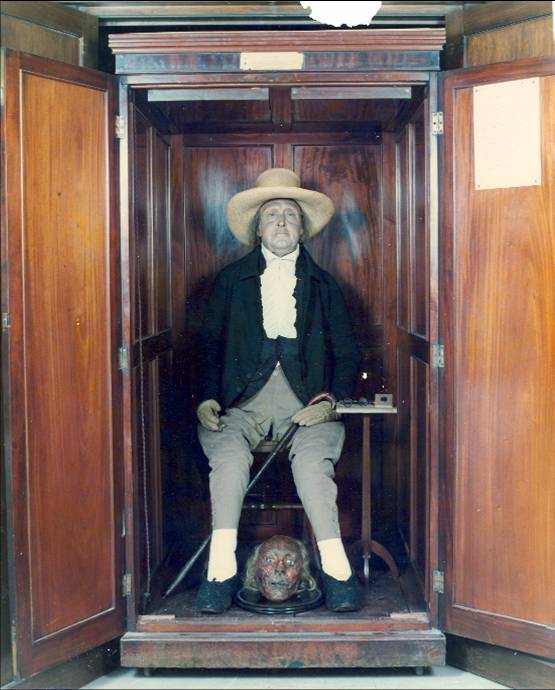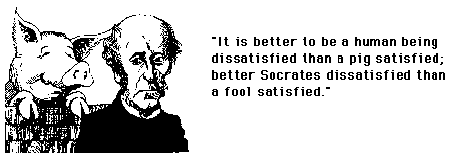What is Utilitarianism?
Utilitarianism is an ethical theory by which actions are judged according to their anticipated results. This makes it a consequentialist theory – as it looks at the consequences of actions to determine their morality.
The Three Types of Utilitarianism
Act Utilitarianism Theory is applied to the results of individual actions
Rule Utilitarianism Theory takes into account the results of obeying general rules of conduct.
Preference Utilitarianism Theory takes into account the preferences of those involved in a particular course of action.
Principle of Utility
Where there is a moral choice do that which results in ‘the greatest happiness for the greatest number of people.’
The greatest happiness principle is the main principle of Utilitarianism. It states that the moral worth of an action is based on how much happiness it produces. So an action which produces a lot of happiness is more morally right than one which produces sadness. The Greatest Happiness Principle or GHP for short is made up of three components.
- The Consequentialist Principle – The consequences of an action are all that matters when deciding if it is good or not.
- The Hedonic Principle – The only consequences that matters is happiness.
- The Equity Principle – No ones happiness is more important than anyone else’s.
What is Happiness?
There are so many definitions about what happiness is and how we feel happy. There are millions of pounds spend on self help guides to encourage people to be happy. Derren Brown wrote a book all about the concept of happiness and how we approach it.
Utilitarian’s claim that what everyone wants is to be happy. It is intuitively right, i.e. we just instinctively know it, without even thinking about it. This is the same as saying, it is obvious to us. Happiness is to be found in the promotion of pleasure and the avoidance of pain. When we are experiencing pleasure we are by definition happy. When we are experiencing pain we are unhappy. So, the good thing to do is always to create pleasure/ happiness. When we promote pleasure we are doing good. When we promote pain we cause unhappiness and so any such action is bad.
Jeremy Bentham – 1748-1832
Jeremy Bentham is the founder of an approach to moral philosophy called Utilitarianism. He is associated with the form of Utilitarianism called Act Utilitarianism. He was born in London in 1748. He believed society needed a lot of reform and championed many things which were considered very radical in their day.
| Bentham Campaigned For | Bentham Campaigned Against |
| Freedom of speech.
Equal rights for women (including the right to divorce). The decriminalising of homosexuality. Animal rights. | Slavery.
Physical punishment (including smacking children). The death penalty. |

Bentham died on 6 June 1832 aged 84 at his residence in Queen Square Place in Westminster, London. He had continued to write up to a month before his death, and made careful instructions for what should happen to his body after he died.
His body was preserved and is still currently on display at the University College London which is a university he had a hand in founding. Rumors have suggested that his body is wheeled out during important meetings and sat at the head of the table.
John Stuart Mill
John Stuart Mill is another big figure in Utilitarianism. He is associated with the type of Utilitarianism called Rule Utilitarianism. Mill was a pupil of Jeremy Bentham and they both wanted the same reforms.
He was given an extremely rigorous upbringing, and was deliberately shielded from other children his own age other than his siblings. His father was a follower of Bentham and aimed to create a genius that would carry on the cause of utilitarianism and after Bentham had died. His rigorous education led to his completing the reading for a demanding classics degree by the age of 10, and by the age of 12 he could read Aristotle in the original Greek.
Mill suffered a nervous breakdown when he was 21. He said the cause of his break down was due to the stress of his upbringing and the fact that he did not have a normal childhood. Mill managed to resolve his mental health issues and was considered one of the most influential English writers in the 18th century. Mill died in France in 1873 and was buried next to his wife who was also a philosopher and a woman’s rights activist.
Hedonic Calculus
Bentham though that each person had the same entitlement to happiness and the happiness was given the same value. Bentham wanted to create a way of measuring and calculating the amount of pleasure and pain that came from an action to deem whether it was in fact creating the greatest good for the greatest number of people.
This hedonic calculator had seven factors to consider (Bentham only proposed six, the seventh was a later addition by J. S. Mill).
If you look at this example of deciding whether to have a cup of tea or go to the cinema to see how the calculus works.
| Criteria | Drinking Tea | Going to the Cinema |
| Intensity – How intense will the pleasure be? | 5/10
(Good but not the best pleasure ever) | 6/10
(Very fun whilst watching but not the best pleasure ever) |
| Duration – How long will the pleasure last? | 2/10
(Only as long as the cup lasts) | 3/10
(Long than the tea but only a few days after the movie) |
| Certainty – How likely is the pleasure to happen? | 9/10
(even a bad cup of tea is enjoyable) | 5/10
(It could be a bad movie) |
| Propinquity – How immediate is the pleasure? | 10/10
(As soon as you begin drinking) | 5/10
(Movies can take a while to get into) |
| Fecundity – How common is this pleasure? | 10/10
(Most people drink tea every day) | 5/10
(The cinema is likely a monthly event) |
| Purity – How likely is it to be followed by pain? | 3/10
(The crushing realisation that there is no tea left)
| 5/10
(It could be a bad movie and you could be disappointed that you spent money on it) |
| Extent – How many people will experience the pleasure? | 1/10
(Just the tea drinker) | 2/10
(You are more likely to go to the cinema with a friend) |
| Total | 40 | 31 |
Strengths of Bentham’s Theory
- It is straight forward and laid out well to use the hedonic calculus as clear guidelines of moral standards.
- It is promoting as much happiness/pleasure as possible in moral situations.
- It is promoting as little unhappiness/pain as possible in moral situations.
- Act Utilitarianism looks at individual moral actions to decide what is right for those involved in those particular circumstances.
Weaknesses of Bentham’s Theory
- Bentham’s view can lead to excessive amounts of violence in a bid to scare off potential offenders.
- Bentham’s view can lead to the innocent man being punished if that produces the greatest happiness.
- Although it calculates the greatest amount of happiness in a situations, there will always be the minority who feel pain from this.
- It is time consuming to use the hedonic calculus for time sensitive cases.
Higher and Lower Pleasures
Mill thought that pleasure and pain should not be measured by its quantity (as Bentham’s Hedonic Calculus showed). It should instead by measured by its quality (qualitative approach)! This led him to think about the quality of pleasure that existed. He realised that we can have higher pleasures and lower pleasures.
- Higher Pleasures – Intellectual pleasure e.g. reading a good book, going to the theatre.
- Lower Pleasures – Sensual/physical pleasure e.g. food, drink, sex.
The higher the goodness, the more pleasure will come from it. So, reading a good book or other higher pleasures involving the mind would be far superior and would supersede the lower pleasures of food, drink, sleep, sex etc.
Differences Between Mill and Bentham
Mill also differed from Bentham in that he emphasised the long term goals rather than the immediate pleasures. Therefore short term pain was acceptable to gain long term pleasures. Instead of losing value over time pleasure could actually increase.
Mill’s final disagreement and departure from Bentham demonstrated itself in the introduction of rule utilitarianism. He argued that rather than working out each act and its moral value humans should stick to general-held moral rules e.g. do not steal, lie, murder etc. as society itself would benefit directly from this and so increase overall happiness.
A quick evaluation of General Utilitarianism
Strengths
- Linking morality with happiness and avoidance of harm seems reasonable
- Most people consider the consequences of an action when they make a moral decision so it fits in with human nature
- It takes into consideration the impact an action will have on others and promotes the happiness of those around us.
- It is a common-sense approach to making moral decisions
Weaknesses
- No-one can accurately predict the future nor know how far moral actions will impact on the future
- Determining what is considered pleasurable or causing happiness is a tricky business and evaluating the worth or quality of happiness is near impossible.
- It can lead to injustice and unfair treatment of minority groups.




One thought on “What is Utilitarianism?”